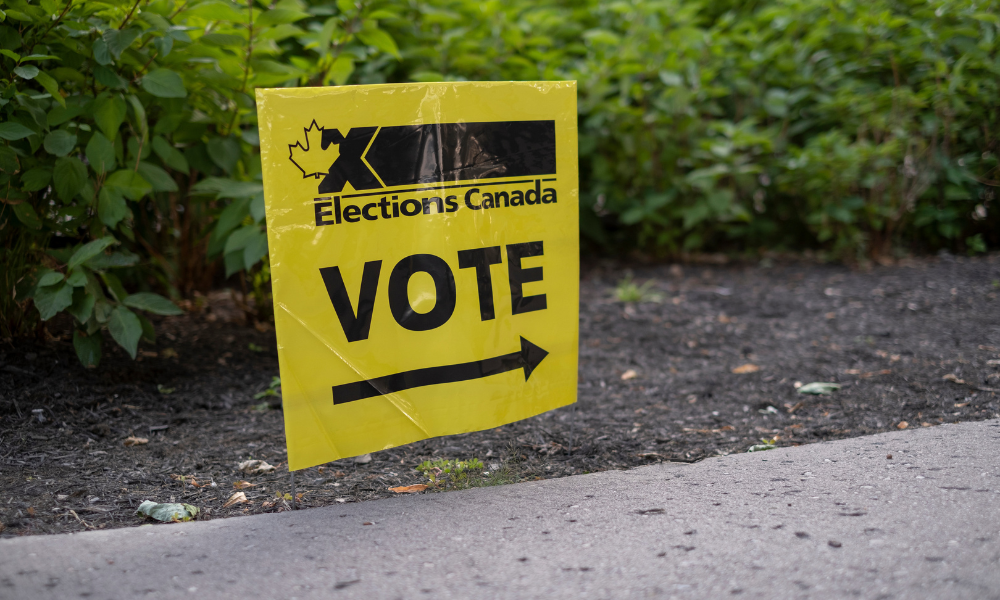
The real test begins now – will the Liberals stick with an evidence-based approach to crime?

Pierre Poilievre managed to snatch defeat from the jaws of victory. Not only did the Conservatives squander one of the biggest electoral leads in modern Canadian history, but Poilievre lost his seat in Parliament. So much for “bringing it home” – unless he meant to an empty apartment with the locks changed.
And while the Liberals may be nursing champagne hangovers, the real winner on election night wasn’t a party or a person. The Canadian justice system narrowly avoided being turned into a punching bag for populist rage.
Poilievre’s justice platform wasn’t just flawed but a full-on constitutional demolition derby. His plans to invoke the notwithstanding clause to override Charter protections weren’t just extreme – they were dangerous. Add in promising to implement US-style three-strike laws, limit access to bail, ban conditional sentences, and ignore any evidence that didn’t fit the ideological script, and you had a blueprint not for safety but for injustice.
Poilievre’s justice proposals weren’t just unconstitutional – they were dishonest. Take Poilievre’s debate claim that gun crime had risen 116 percent over the past decade, a number he used to paint Canada as some dystopian hellscape. But when you look at the data – and ignore the 2023 decline – the firearm-related violent crime rate only increased by 29 percent during the Liberal government’s tenure. It’s still concerning, sure, but not exactly The Purge: Ottawa Edition.
Crime data is complex. It doesn’t lend itself to bumper stickers or TikTok clips. But politicians know fear works, and they know cherry-picking numbers, fudging timelines, and exploiting tragedy is a reliable way to whip up support. It’s cynical, corrosive, and doesn’t make us safer.
The seductive appeal of simple solutions – especially those that involve taking away other people’s rights – should be a red flag. Populist policies built on disinformation don’t solve problems. They create new ones by eroding the dignity, liberty, and protections that underpin a free society. Poilievre never seemed to grasp that the justice system’s purpose isn’t to act out a vengeance fantasy. It’s to ensure fairness, dignity, and restraint – especially when those values are inconvenient.
So yes, Poilievre’s exit is a win for the Charter. But don’t pop the bubbly just yet.
Enter Mark Carney. The former Bank of Canada governor turned prime minister-elect pulled off what many thought impossible: reviving a tired Liberal brand and securing a strong minority mandate. His campaign had one thing the Conservatives lacked: an actual plan. And when it comes to justice, the difference is night and day.
The Liberal platform – brace yourself – acknowledges that we can’t arrest our way out of poverty, addiction, or mental illness. Expanding drug treatment courts, funding mental health, and supporting restorative justice programs are not just decent ideas – they’re backed by decades of research. Compared to the Conservative platform – which reads like RoboCop ghostwrote it – it’s downright visionary.
But even the Liberals can’t help themselves. Mixed in with the good stuff are the usual recycled “tough on crime” nuggets, such as pledging to make bail harder for repeat violent offenders or mandating weapon bans on release. Judges already do this every day. Announcing them like they’re revolutionary is like unveiling a bold new plan to put maple syrup on pancakes. These “tough-on-crime” flourishes risk overshadowing the serious, thoughtful work the platform gets right. Evidence-based reforms shouldn’t need to be wrapped in political cosplay.
To his credit, Carney seems to understand the stakes. When Poilievre floated using the notwithstanding clause to sidestep Supreme Court rulings, Carney didn’t hold back: “The Charter exists to protect Canadians from people like us – politicians – who may use their power to override fundamental rights. The issue is not where you start but where will you stop.” That’s exactly right – and a chilling reminder that we spent a year debating whether constitutional rights were optional.
Even better, Carney talked about prevention, not just punishment. In other words – how do we stop crime before it happens? Hallelujah. That kind of leadership acknowledges that safety doesn’t begin in the courtroom – it starts in our schools, health care systems, and social safety nets.
But Mark, call me – we still need to talk. Because even you veered uncomfortably close to Poilievre territory in suggesting that harsher penalties would help prevent crime, “[W]e’ve committed to increasing criminal penalties [for car theft and home invasion]….” That kind of reactive policymaking sounds excellent in a soundbite but does little to improve safety. Let’s be clear: harsher sentences don’t deter crime. What deters crime is getting caught. That’s not a radical idea – it’s Criminology 101. In 2018, law professor Janine Benedet told the House of Commons that the likelihood of apprehension is the most significant deterrent. Criminologist Anthony Doob said the same thing over a decade earlier. This is as settled as facts get in criminal justice.
So, let’s stop with the theatrics. Let’s stop chasing headlines and start chasing real solutions. We’ve spent too long pretending justice is about who can talk toughest. It’s time to double down on what works.
Poilievre promised to bring it home. He didn’t. But if Carney is serious about evidence, prevention, and rights, he just might.